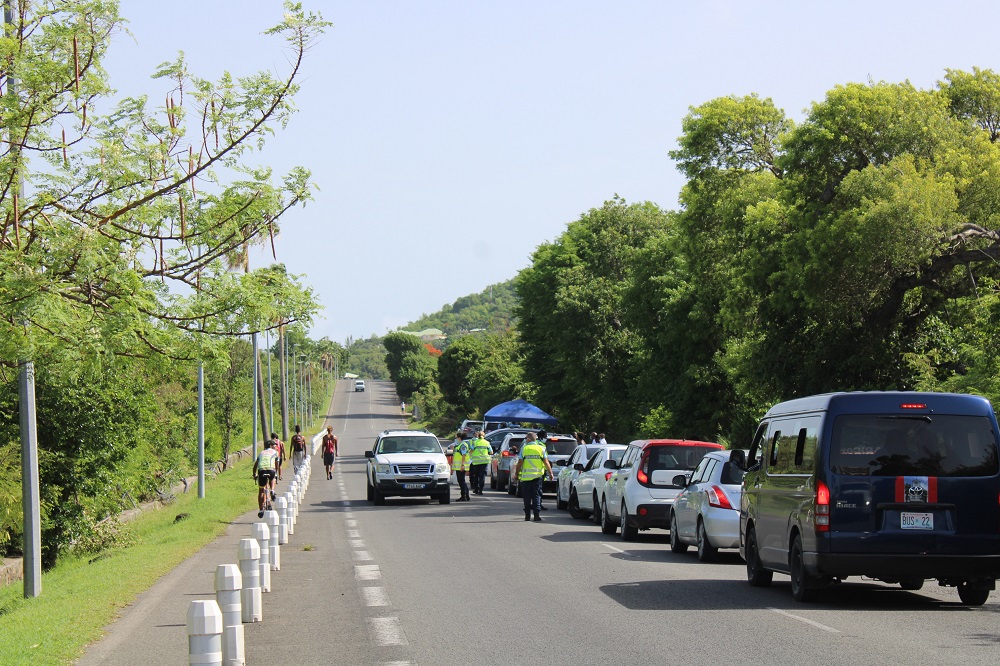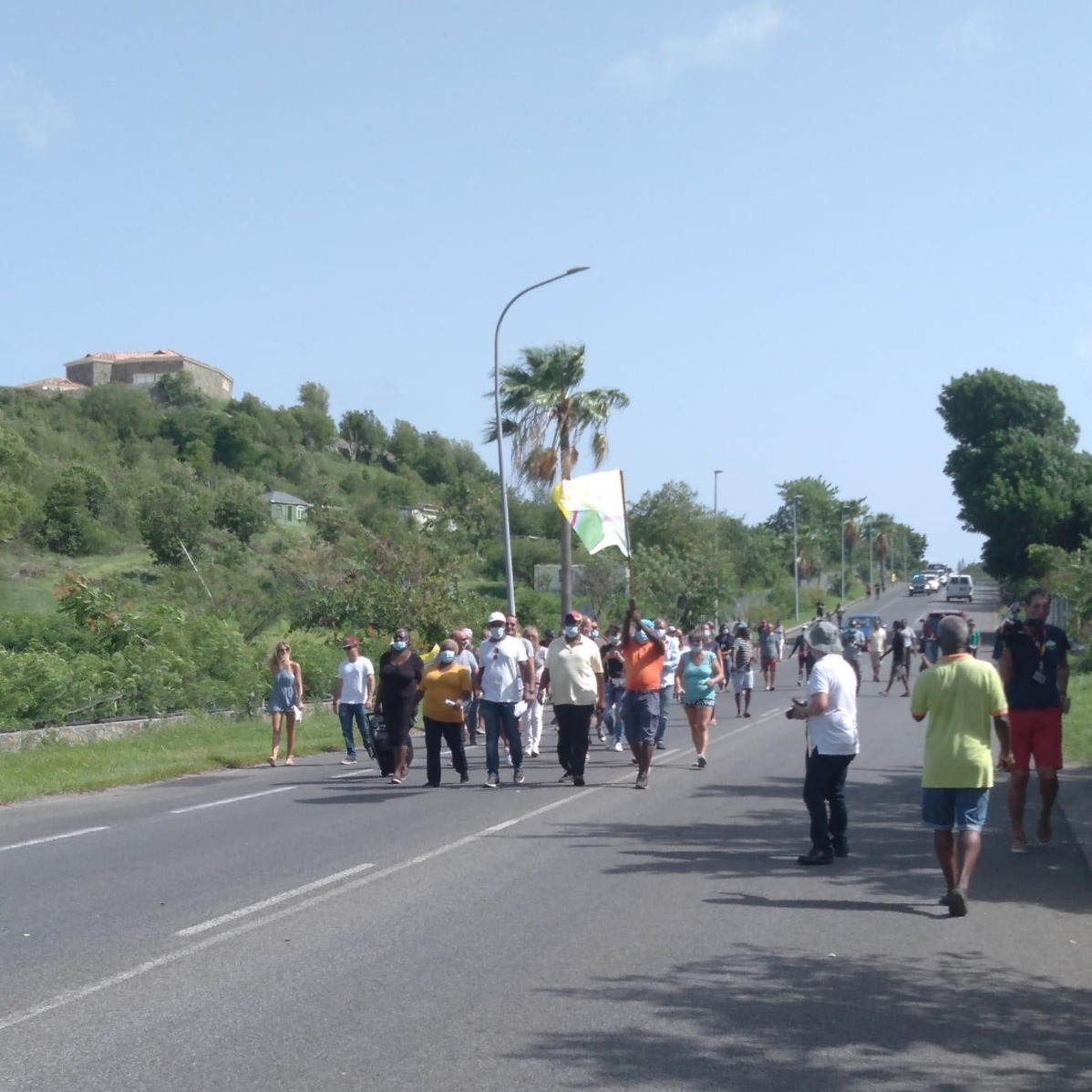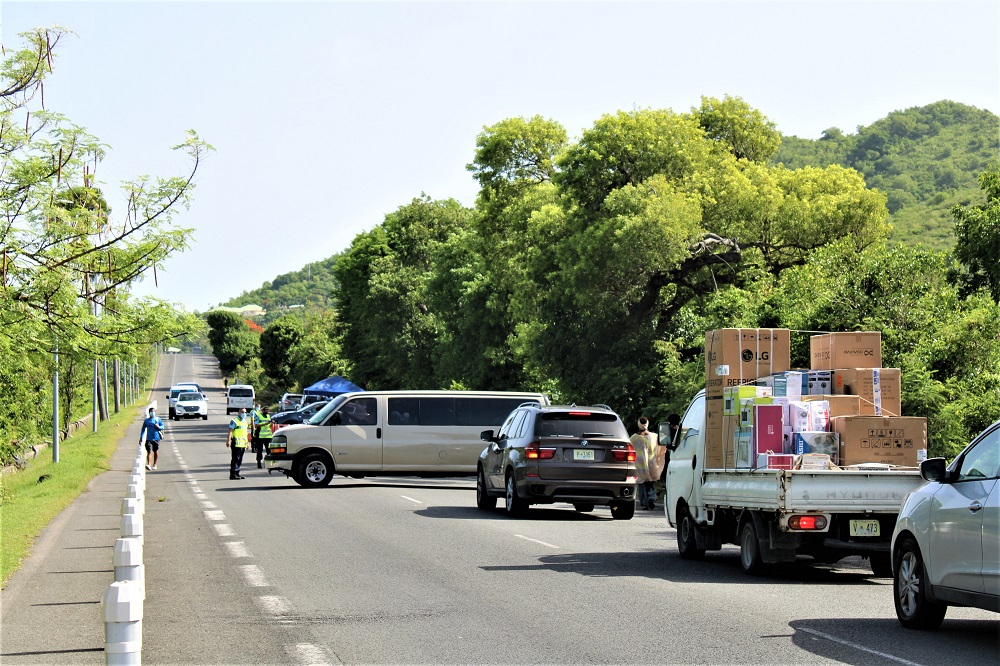French/Dutch border restrictions do not apply to pedestrians

BELLEVUE — French St. Martin reported sixteen new COVID-19 cases today. Officially, the border between the Dutch and the French side has been closed since July 31, a day before St. Maarten welcomed American tourists. St. Martin does not want American tourists, but pedestrians and cyclists can cross the border without being checked.
According to St. Martin authorities, thirteen of the sixteen new COVID-19 cases are due to local community transmission. Eighty-nine active cases have been identified on the Dutch side; today, three new cases have been added. “All we need to do as a country, in order to flatten this new wave, is that we adjust our behavior,” said Prime Minister Silveria Jacobs. “For the general public, it is mandatory to wear a mask, wherever you are going: in stores, businesses, and any establishment out in the public. Masks should be covering the nose and the mouth at all times.” The population must also adhere to the obligation of social distancing.
Despite a new wave of infections since July 25, St. Maarten continued to reopen to the U.S. Market on August 1. Sylvie Feucher, Préfect of Saint Martin and Saint Barthélemy, had previously said that, due to a high number of COVID-19 cases in the United States, she would close the French/Dutch borders should the Dutch government reopen Princess Juliana International Airport to inbound flights from the US. The measure was announced for Friday, July 31, at noon. The Préfecture indicated that “controls will be put in place at the Bellevue roundabout and at Belle Plaine by the staff of the border police and the National Gendarmerie. The border points of Cupecoy and Baie aux Huîtres (Oyster Bay) will be blocked from this date.”
According to the Préfecture, these restrictive measures are “essential to limit the circulation of the virus and avoid reaching the capacity limits of our health system.” However, the check does not apply to people who cross the border on foot or by bicycle. Every afternoon, a crowd of hikers crosses the border near Marigot without the gendarmerie looking up or around. Cyclists and mountain bikers can go to the French side without control. There is no social distancing, and only a few wear a face mask.
At the Bellevue roundabout, young people play football in the evening. Large groups of young people hang out in the street, listening to music from a stereo connected to a generator. Athletes who have completed their usual lap across the bridge to Simpson Bay gather by their cars in the parking lot at the Bellevue roundabout in Marigot. No one wears a mask.

Yesterday, a group of 60 protesters headed for the border from that same parking lot to express their dissatisfaction with the restrictions they believe violate the Concordia Treaty, which has guaranteed the free movement of people on St. Maarten/St. Martin for 372 years. “We are one island, one people,” the French protesters argue.
The protestors have the support of St. Martin Chamber of Commerce President Angèle Dormoy. She has publicly sounded the alarm on the economic impact of the border closures and restrictions in a letter to Préfect Sylvie Feucher dated August 4. “Historically, the island’s authorities have always chosen to build a territory based on shared resources and infrastructures: while the reception infrastructures are partly Dutch, the French side boasts the tourist charm of its coastline, its architectural heritage, its cuisine with Creole flavours and world-renowned specialities,” she wrote. “Thus, if the two parts of the island are economically interdependent, the repercussions are essentially economic.”

French taxis and busses depend mainly on arrivals at Princess Juliana International Airport (PJIA), transporting tourists between Simpson Bay hotels and shops and restaurants in Marigot and Grand Case, Orient Bay and other French side beaches. “Companies are exhausted, despite their resilience, and are suffering from the unprecedented economic slump. The consequences of Hurricane Irma, the water bromates crisis, the December 2019 demonstrations, and the current health crisis of COVID-19 have largely contributed to the killing of our economy. This new border closure will lead to the certain death of hundreds of companies on the French side of the island, which will lose about fifty percent of their customers,” Dormoy predicts.
###
Related articles:
Border closure has taken on a European context, says MP Wescot-Williams
Border closure brings cross-border social security fraud to light
Soualigapost.com: The closure of the border highlighted social assistance fraud
French authorities confirmed closing border control posts
Exposé report: Reasons for the continued French side border controls after May 17
French side border controls remain in place
Why does the French continue monitoring the borders?


























